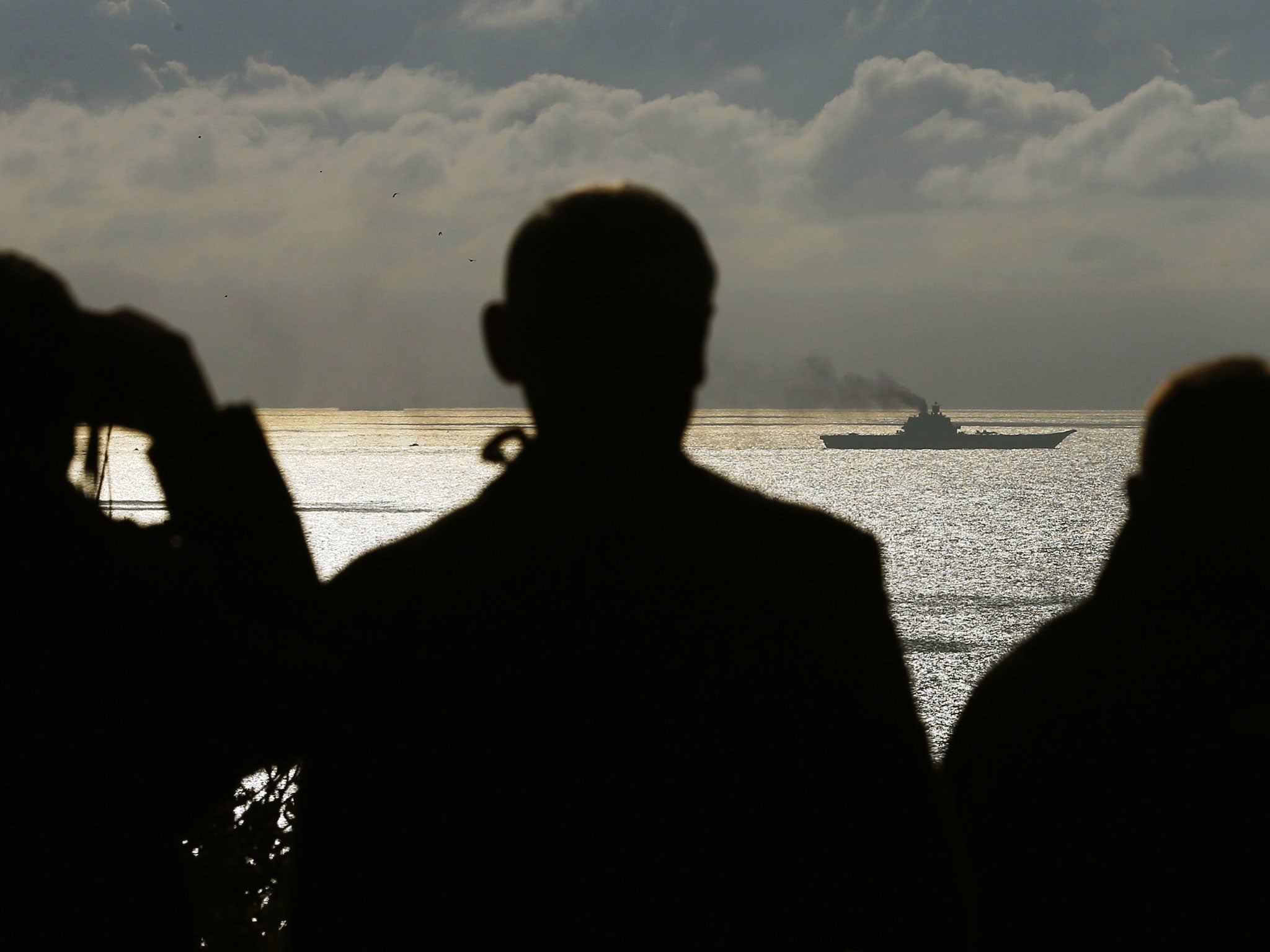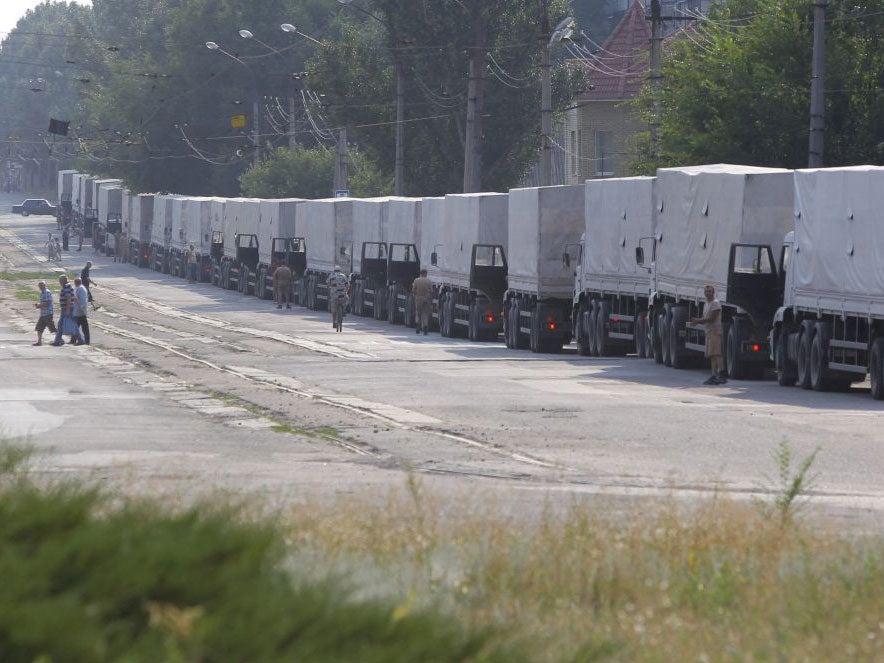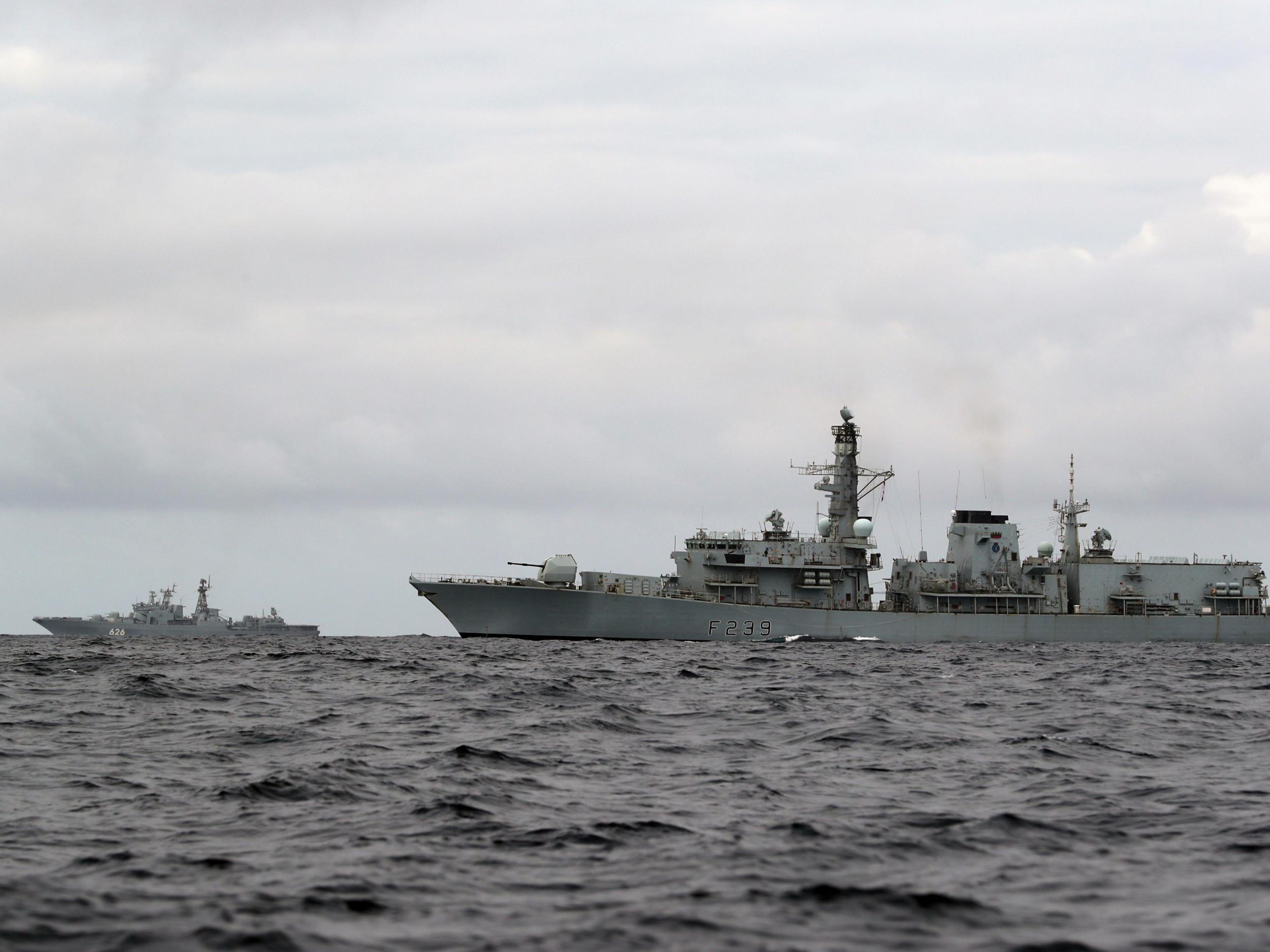Russian warships in English Channel ‘a smokescreen to distract world from more important military deployments’
‘They have achieved complete media and public focus on one bright, shiny object,’ says analyst
Your support helps us to tell the story
From reproductive rights to climate change to Big Tech, The Independent is on the ground when the story is developing. Whether it's investigating the financials of Elon Musk's pro-Trump PAC or producing our latest documentary, 'The A Word', which shines a light on the American women fighting for reproductive rights, we know how important it is to parse out the facts from the messaging.
At such a critical moment in US history, we need reporters on the ground. Your donation allows us to keep sending journalists to speak to both sides of the story.
The Independent is trusted by Americans across the entire political spectrum. And unlike many other quality news outlets, we choose not to lock Americans out of our reporting and analysis with paywalls. We believe quality journalism should be available to everyone, paid for by those who can afford it.
Your support makes all the difference.The decision to sail a fleet of Russian warships through the English Channel could be a “distraction” to divert the world’s attention from military operations elsewhere, an analyst has warned.
The passage of the Russian navy’s flagship Admiral Kuznetzov aircraft carrier and six other ships has been the subject of intense media coverage in Russia, the UK and Europe as they journey towards Syria.
Royal Navy ships were tracking the vessels through international waters in the English Channel after they entered the narrow passage near Ramsgate on Friday morning.

The Admiral Kuznetzov is loaded with fighter jets, reconnaissance and combat helicopters and cruise missiles to be used to bolster Russia’s bombing campaign in support of President Bashar al-Assad.
But Keir Giles, an expert in Russian security issues, told The Independent that bolstering the country’s firepower in the Syrian conflict was not the deployment’s only objective.
“The biggest thing that worries me is that while there is all of this intense media focus not just in the UK but in Europe on this one action in one place, what are they [Russia] doing somewhere else?” he asked.
“They have achieved two of their primary objectives already even without doing anything irresponsible while they are in transit to the eastern Mediterranean.
“First, they have got the world’s attention once again on Russian military capability, which is one of the key aims in terms of deterring Western military or other action.
“Secondly, they have achieved complete media and public opinion focus on one bright, shiny object that is being held up to potentially distract from more important things happening elsewhere.”

Mr Giles, an associate fellow of the Russia and Eurasia Programme at Chatham House, said similar techniques had been used to disguise deployments in Ukraine but that Western authorities tended to discover Russia’s intentions “a bit too late”.
“It could be in any one of half a dozen places,” he added. “It could be in Ukraine, Syria, or anywhere else that Russia feels its interests and those and the West are in competition. And that’s a lot of places.”
In 2014, huge media attention was directed to a “humanitarian convoy” crossing from Russia into eastern Ukraine, with news correspondents and news agencies tracking the lorries.
But Anders Fogh Rasmussen, then the Nato Secretary-General, was among those suggesting the operation was a smokescreen for the use of Russian forces to stop a Ukrainian government offensive against separatist rebels. The Kremlin has continued to deny direct involvement in the conflict.
Mr Giles said that if Russia’s sole aim was to transfer weapons to Syria with its latest deployment, sailing seven ships from the Arctic Circle, down the Northern Sea, through the English Channel, the Atlantic Ocean and along the Mediterranean Sea would not be the most efficient method.
The ships, including the Admiral Kuznetsov, Pyotr Veliky (Peter the Great) battlecruiser, the Vice Admiral Kulakov destroyer, Severomorsk destroyers and several supply vessels, had to travel in a column as part of a “traffic separation scheme” in the Dover Strait.

“The English Channel is one of the busiest shipping lanes in the world so the Admiral Kuznetsov can very easily cause a problem simply by being there without necessarily doing anything hostile,” Mr Giles said.
“There are all sorts of things they can do to cause their surroundings a headache but there’s no reason to think they would because they’re already achieved their objectives.”
The aircraft carrier previously caused disruption in 2008, when it operated jets and aircraft near Norwegian oil platforms.
Its latest pass through northern Europe comes after a series of military encounters between Russia forces and Nato members in the region.
Russian planes have neared sovereign airspace, causing fighter jets to be scrambled on numerous occasions, as well as approaching foreign military and civilian aircraft in “near misses” that have caused international alarm.
The incidents come amid increasing tensions over Vladimir Putin’s intervention in Syria, the Ukraine conflict and tit-for-tat sanctions with the EU.
Mr Giles said the Russian government was attempting to project an image of military power and readiness to deter opponents from opposing its foreign policy.
“It fits very neatly into the notion that a war with the West is coming and Russia is ready for it,” he added.
“Basically they’re already in a state of conflict with the one exception that there’s no direct military clash, because that’s where it starts going wrong for Russia.”
Theresa May condemned Mr Putin's policy in Syria as the ships continued their journey on Friday, accusing Moscow of being behind “sickening atrocities” in support of President Assad’s regime.
The Prime Minister called for a “robust and united European stance in the face of Russian aggression”.
Sir Michael Fallon, the Defence Secretary, said naval deployment was aimed at testing British capabilities and that it would be marked by British destroyers and frigates “every inch of the way”.
The Russian ships left the English Channel late on Friday afternoon to continue their journey south.

Join our commenting forum
Join thought-provoking conversations, follow other Independent readers and see their replies
Comments